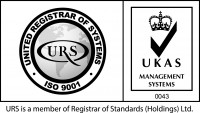A UPS (Uninterruptible Power Supply) serves as a protective device installed between the main power supply and critical equipment in a building or room. Its purpose is to safeguard against power fluctuations or failures by providing backup power, typically from batteries, when the electrical mains supply experiences a failure or drops to an unacceptable voltage level.
UPS systems are available in single-phase and three-phase configurations.
Smaller UPS systems, which can be plugged into a nearby power socket, generally offer a few minutes of backup power from built-in batteries. This duration is sufficient to allow for a proper shutdown of a computer or other connected devices. Additional battery enclosures can extend the backup time further.
Larger UPS systems, depending on their power rating, may incorporate internal batteries and/or additional battery enclosures. These batteries can be housed in enclosures that match the UPS or in separate cladded battery stands. Open battery racks are also available as an option.
For extended battery backup times, a generator can be used to supply power to the UPS system while also supporting other equipment like air conditioning or lighting. This approach can provide a more cost-effective alternative to relying solely on batteries.
UPS systems can include features that allow them to send alerts to fileservers, triggering an orderly shutdown in the event of an outage. Users can also be notified via text or email, and Building Management Systems (BMS) can receive notifications as well.
Fletcher Crescent
Plymouth
PL9 8LQ
Plymouth Tel: 01752 423151
Exeter Tel: 01392 341958
Truro Tel: 01872 300221
E-mail: sales@southwestpowerprotection.co.uk




